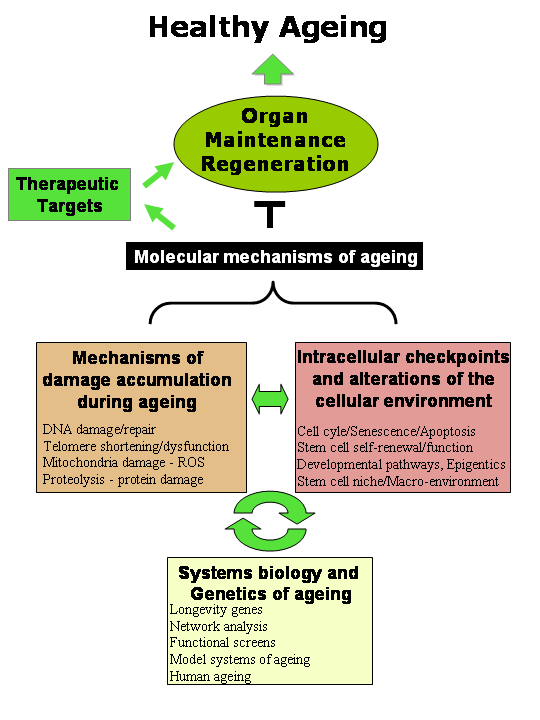
|

|
|
|
Research Summary Decline of organ maintenance and regenerative reserve are major causative factors that reduce quality of life during ageing. The molecular basis of these processes is not well understood. During ageing, there is an accumulation of damaged macromolecules, including DNA and proteins. The molecular analysis of cell intrinsic checkpoints as well as environmental alterations that impair cellular function and organ maintenance in response to damage accumulation is an emerging field in ageing research. Analysing the functional consequences of these molecular mechanisms for the function of adult stem cells is of crucial importance, given the pivotal role of these cells in organ regeneration and homeostasis. Although ageing is a multi-factorial process, it is apparent that different factors activate some common, highly conserved molecular pathways that limit stem cell function, organ maintenance and regeneration. Network analysis and systems biology can help to define major signalling pathways controlling the ageing process. The main objective of this research priority programme (RPP) is the identification and functional characterization of major mechanisms of ageing that limit stem cell function, organ homeostasis and regeneration in response to damage accumulation. To achieve this goal the consortium brings together leading scientists working on molecular mechanisms of ageing in the following three interconnected areas:
In order to identify major mechanisms of ageing, this consortium has chosen an integrated approach combining research on basic molecular mechanisms of ageing with systems biology. To stay focussed, the call excludes work on cancer and specific age-related diseases. The analysis of stem cells within the RPP is focused on molecular mechanisms limiting the function and maintenance of adult stem cells during aging, but excludes work on embryonic stem cells and re-programming. 
|
||
©
 dw-websites
dw-websites
|
English I Deutsch I Imprint I Contact |